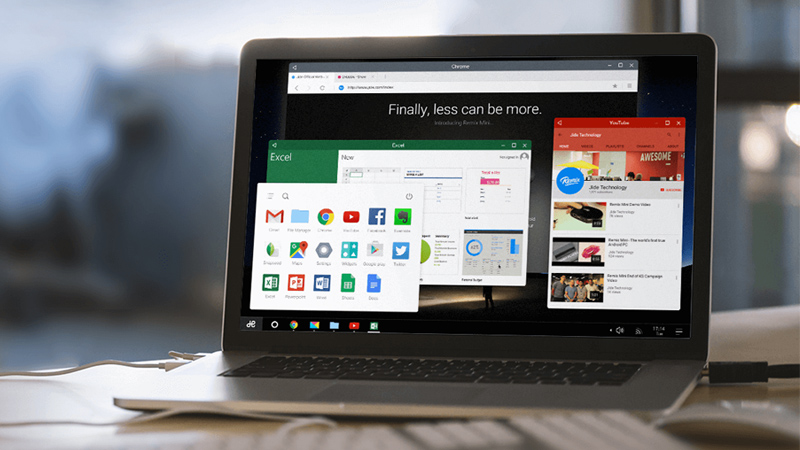Remix OS 2.0 Now Available To Download For PCs And Macs
Just as Jide Technologies promised recently, the Remix OS 2.0 is now available for download for both PCs and Macs. Remix OS is an Android-based operating system built with a PC user interface in mind.
Remix OS merged with the Android-x86 project so it can work on hundreds if not thousands of PC configurations out there, thanks to the driver compatibility work done by the developers from the Android-x86 team. The Remix OS comes with the fresh PC-optimized UI that makes Android-x86 more usable on a desktop machine, much like other PC operating systems.
The current release is still in alpha stage, so there may still be bugs, which is why you're supposed to check the “I’m a developer” button before you are able to download the OS from its page.
Before you try installing the OS on a PC, you need a USB 3.0 flash drive with 8 GB storage or higher that can support write speeds of 20 MB/s and a PC that supports the legacy boot option.
Once you have those, you can follow the instructions here to install it:
- Download Remix OS for PC package and then unzip the file.
- Insert the flash drive in your PC.
- Open the Remix OS USB Tool and follow the instructions to burn the flash drive.
- Reboot your PC.
- Press F12(PC)/Option(Mac) while booting and enter Boot Menu.
- Select "USB Storage Device" as boot option under Legacy Mode.
- Select either "Guest Mode" or "Resident Mode" to start Remix OS.
It shouldn’t take more than a few minutes to install the Remix OS 2.0 on your PC, and then you can start running Android apps natively on your desktop machine.
Lucian Armasu is a Contributing Writer for Tom's Hardware. You can follow him at @lucian_armasu.
Get Tom's Hardware's best news and in-depth reviews, straight to your inbox.
Lucian Armasu is a Contributing Writer for Tom's Hardware US. He covers software news and the issues surrounding privacy and security.
